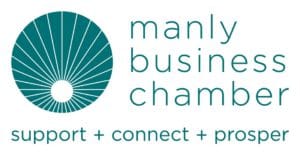Every Day is R U OK Day
“R U OK?” three simple words that can make a real difference. Thursday 10th September is R U OK day here in Australia. It is our national day of action when we remind Australians that every day is the day to ask, “Are you OK?” if someone in your world is struggling with life’s ups and downs. 2020 has been a challenging year for many and circumstances have made it even more important for us all to stay connected and, for those who are able, be willing to support those around us.
R U OK is a suicide prevention charity with a mission “to inspire and empower everyone to meaningfully connect with people around them and support anyone struggling with life.” It was founded in 2009 by Gavin Larkin who lost his father to suicide in 1996.
The statistics on suicide are alarming. According to 2013 data from the Australian Bureau of Statistics (ABS), deaths due to suicide numbered 3,027 in 2015, but for every death by suicide it is estimated that 30 people attempt to end their life. Suicide is the leading cause of death for Australians aged 15 to 44. And it has a devastating impact on families, communities and the economy. The ABS estimated the annual cost of mental illness in Australia at $20 billion in 2013.
But despite these figures, there is still a reluctance to speak out about mental illnesses, especially in the workplace. In recent research conducted by the Workplace Mental Health Institute almost 50% of employees surveyed said they would not respond with “No” when asked the question “R U OK?” by their boss, when the truthful answer was in fact “No”. There is a stigma attached to mental health.
It’s time to change that. Here are some ways to acknowledge and promote mental health at work:
1. Open communication
Encourage employees to speak up and share their concerns and problems on a regular basis. Isolation and hopelessness can lead to depression and other mental illnesses. Open communication could take the form of one-on-one discussions or topical debates within a group, or simply informal chats among colleagues. An anonymous survey could also be considered as a starting point for assessment; this could encourage reluctant employees to voice their opinions in confidence.
2. Zero tolerance for harassment and bullying
Too often there are stories of employees who commit suicide due to unendurable situations in the workplace. Victorian anti-bullying legislation Brodie’s Law commenced in June 2011 after the tragic suicide of a young waitress who had been relentlessly bullied at work. But state legislation does not and should not replace action within individual workplaces to ensure a healthy environment for all employees. Hopefully, by creating open communication channels, individuals will have the courage to speak up. Any reports of bullying and harassment should then be thoroughly investigated by management.
3. Valuing employees and giving them control
In the literature, there is a strong link between hopelessness and depression, which, in conjunction with mental illness can lead to suicide. Giving employees control over their work and valuing their achievements can enhance employee engagement at work and help to promote psychological well-being throughout the organisational culture.
4. Participation in R U OK Day
This national day of action is a great way to promote awareness and acceptance of mental illnesses at work, at school and in the community. The R U OK website provides a wealth of materials to support involvement. The 2020 workplace kit includes posters, screensavers, key messages and so much more.
Do note, however, that these four suggestions scratch at the surface of a complex and multifaceted issue. Creating a mentally healthy workplace takes understanding, time and commitment. This report for the National Mental Health Commission and the Mentally Healthy Workplace Alliance is well worth a read if you’d like to find out more. It contains a comprehensive analysis of mental health at work as well as recommended strategies for creating a mentally healthy workplace, and practical recommendations.
If you feel like something’s not quite the same with someone you know – there’s something going on in their life or you notice a change in what they’re saying or doing – trust that gut instinct and take the time to ask them “Are you OK?” If someone says they are not OK, make time to listen, encourage action and check in. That conversation could change, or even save, their life. Do not forget to check back in and not just on R U OK Day, Every day.
Useful contacts for someone who is not OK
Lifeline (24/7) 13 11 14 lifeline.org.au
Suicide Call Back Service (24/7) 1300 659 467 suicidecallbackservice.org.au
Beyond Blue (24/7) 1300 224 636 beyondblue.org.au
Kids Helpline (24/7) 1800 55 1800 kidshelpline.com.au
Did your workplace participate in R U OK Day this year?










